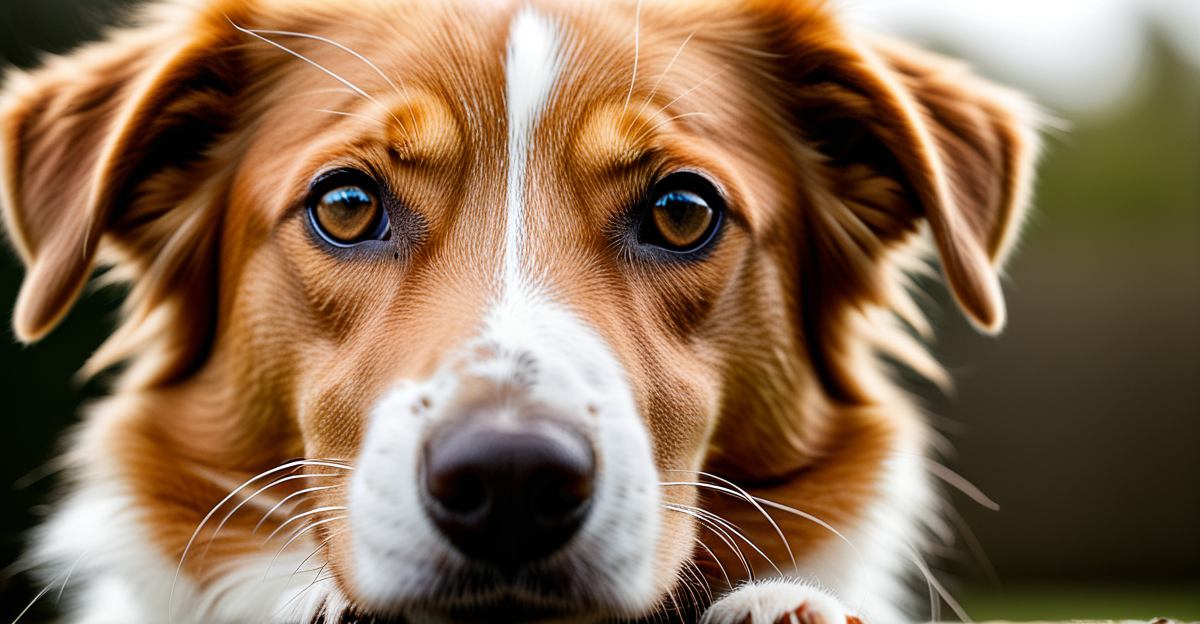Key Factors Driving Pet Popularity in the UK
The reasons pets are popular in the UK stem from a complex mix of historical, cultural, and economic influences. Traditionally, British households have favored companions like dogs and cats, with rabbits also maintaining a steady presence. This preference aligns with longstanding cultural norms where pets are seen as family members, reflecting the pet popularity in the UK.
One significant factor influencing pet choice in the UK is legislation and living environment. Urbanisation and housing types strongly affect pet selection. For instance, residents of flats or smaller homes often choose smaller or less active animals like cats or rabbits due to space constraints, whereas houses with gardens tend to encourage dog ownership.
In parallel : How can UK pet owners improve their pets’ mental health?
Economic factors also play a crucial role. The cost of pet care, including food, healthcare, and insurance, influences which animals people can reasonably keep. Dogs, while popular, often come with higher upkeep compared to cats or rabbits, impacting decisions based on income and lifestyle.
Overall, factors influencing pet choice UK span tradition, practical living considerations, and economics, shaping the diverse preferences seen across the country. Understanding these elements helps explain why certain pets thrive in popularity while others are less common.
Also read : How can UK pet owners choose the right pet food?
Key Factors Driving Pet Popularity in the UK
Pet popularity in the UK is shaped by a complex interplay of historical, cultural, and economic factors. Historically, dogs and cats have dominated pet ownership due to longstanding cultural bonds and companionship needs. The reasons pets are popular in the UK also stem from lifestyles and living environments, which influence pet choice significantly. For example, urban living with limited space favors smaller or less active pets like rabbits or certain cat breeds.
Legislation is another critical factor influencing pet choice in the UK. Regulations around animal welfare and restrictions on exotic or wild animals limit the types of pets people can own, steering popularity toward traditional pets like dogs and cats. Additionally, housing plays a pivotal role; many lease agreements or housing policies restrict pet ownership or specify acceptable species, impacting the pet landscape.
Comparing top pets, dogs remain the most popular owing to their social nature and exercise compatibility with British outdoor culture. Cats, known for adaptability, suit busier urban lifestyles. Rabbits and other small mammals appeal to those seeking low-maintenance companions. The factors influencing pet choice UK reflect a blend of practical, legal, and cultural elements shaping this dynamic market.
The Role of British Culture and Tradition in Pet Preferences
British culture significantly shapes pet popularity UK, with longstanding traditions influencing reasons pets popular UK. Pets like dogs, cats, and rabbits feature prominently in British homes, partly due to cultural attitudes rooted in history. For instance, dogs have been companions on country estates for centuries, symbolizing loyalty and status. This tradition maintains dogs’ high preference among UK pet owners.
Literature and media also affect pet choices. Iconic British stories feature certain breeds, boosting their popularity. The classic image of the English Bulldog or the beloved Beagle from children’s books reflects cultural affinity toward specific breeds. Such cultural representations reinforce the factors influencing pet choice UK by maintaining emotional connections.
Moreover, British pet culture often emphasizes treating animals as family members rather than mere companions, explaining sustained preference for traditional pets. Community events and animal charities further promote awareness and respect for pets, contributing to their popularity.
Cultural traditions also dictate acceptable pets. Exotic or unconventional species have less appeal due to lesser visibility in British culture and stricter regulations. Overall, British cultural values and history play a critical role in defining pet preferences across the UK.
The Role of British Culture and Tradition in Pet Preferences
British cultural heritage plays a significant role in shaping pet popularity UK and factors influencing pet choice UK. Historically, pets such as dogs and cats have been deeply ingrained in family life, reflecting longstanding cultural attitudes pets UK. Literature and media have also reinforced these preferences. Iconic British works featuring dogs—like those portraying the loyal Labradors or the classic terrier breeds—have bolstered their popularity, alongside cats symbolizing independence in British culture.
Traditional British pets often carry specific breed associations. For example, Cavalier King Charles Spaniels link to royal patronage, enhancing their appeal among families valuing heritage. Rabbits, too, maintain steady popularity due to their portrayal in British children’s stories, connecting the younger generation to pets suited to indoor and garden spaces.
These traditions do more than influence choices; they establish emotional connections that drive the reasons pets popular UK. British households often seek to continue these customs, reinforcing the roles dogs, cats, and rabbits play in society. The resulting pet popularity UK is a reflection of both historical roots and contemporary cultural values that prioritize affectionate, familiar companions.
Key Factors Driving Pet Popularity in the UK
Pet popularity UK is shaped by a multifaceted combination of historical, cultural, and economic factors that directly influence pet ownership patterns. For example, the longstanding tradition of dog ownership continues to make dogs the most prevalent pet, while cats hold strong appeal due to their adaptability in urban environments. Rabbits and smaller mammals maintain popularity because they suit space-limited homes and busy lifestyles.
One of the biggest factors influencing pet choice UK is the legislative environment. British laws regulate ownership of exotic or potentially dangerous animals, reducing their presence and indirectly boosting the demand for traditional pets like dogs and cats. Housing also plays a critical role: flat dwellers tend to prefer smaller pets or those with low exercise needs, whereas detached houses with gardens encourage dog ownership for outdoor activity.
Economic considerations cannot be overlooked. Pet care expenses, including food, healthcare, and insurance, directly impact which animals people choose, aligning with the reasons pets popular UK relates so closely to feasibility and budget. In sum, practical living conditions, legal restrictions, and cultural history converge to shape the landscape of pet ownership across the UK.
Key Factors Driving Pet Popularity in the UK
Understanding pet popularity UK requires examining diverse influences shaping ownership choices. The reasons pets popular UK include a blend of historical, cultural, and economic factors that reflect Britain’s evolving society. Traditionally, dogs and cats dominate due to their deep-rooted presence in British households. Yet, rabbits and small mammals also maintain appeal, favored for their suitability in limited spaces and lower maintenance needs.
Legislation significantly affects the factors influencing pet choice UK. Strict animal welfare laws and prohibitions on certain exotic species restrict pet variety, indirectly encouraging preference for traditional companions like dogs, cats, and rabbits. Additionally, housing plays a decisive role. Urbanisation and diverse living arrangements mean those in flats often select smaller or less active pets, while homes with gardens facilitate dog ownership aligned with outdoor activities.
Economics further drives pet choices. The higher cost of pet ownership UK for dogs—factoring in food, healthcare, and insurance—can deter some, boosting the popularity of cats and rabbits whose care expenses tend to be lower. Ultimately, these intertwined factors influencing pet choice UK illustrate how lifestyle, environment, and regulation combine to shape the evolving landscape of pet popularity UK.
Key Factors Driving Pet Popularity in the UK
Understanding pet popularity UK requires examining a blend of historical, cultural, and economic influences that shape owners’ decisions. The reasons pets popular UK include longstanding affection for dogs, cats, and rabbits, rooted in tradition and reinforced by societal norms. These animals offer companionship suited to diverse lifestyles, from active rural living to urban apartment life.
Among the factors influencing pet choice UK, legislation plays a decisive role. The UK’s strict pet laws UK limit ownership of exotic and wild species, nudging preferences toward traditional pets that comply with regulations. Housing conditions also heavily influence choice; for example, city dwellers often select pets adaptable to confined spaces, such as cats or small mammals, while those in houses with gardens favor dogs.
Economic aspects further contribute. Pet care expenses—covering food, healthcare, and insurance—impact affordability and thus pet selection. Dogs generally incur higher costs than cats or rabbits, influencing decisions based on household income. Collectively, these factors influencing pet choice UK create a pet landscape where tradition, legal frameworks, living environments, and budgets interconnect, explaining why dogs, cats, and rabbits remain the most popular companions across the UK.
Key Factors Driving Pet Popularity in the UK
Pet popularity UK is shaped by intertwined historical, cultural, and economic forces that influence ownership patterns. The reasons pets popular UK often relate to long-established traditions combined with practical living factors. Dogs, cats, and rabbits remain dominant due to their adaptability to varied lifestyles and British cultural affection for these animals.
Legislation and housing are major factors influencing pet choice UK. Stringent pet laws UK limit exotic and wild animal ownership, pushing preferences toward traditional pets like dogs and cats. Housing type plays a vital role as well—those in flats or urban settings often opt for smaller, less active pets like rabbits or cats, while owners with houses and gardens typically prefer dogs requiring outdoor exercise.
Economic considerations further shape choices. The cost of pet ownership UK varies widely, with dogs generally requiring more expensive care than cats or rabbits. This affects affordability and thereby influences the factors influencing pet choice UK by linking financial capacity to feasible pet types.
Together, these historical, legal, environmental, and economic aspects establish the foundation for the current composition of pet ownership and highlight why the UK continues to favour dogs, cats, and rabbits as the most popular companions.









